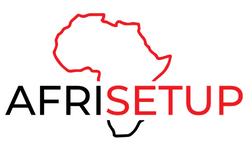- By afrisetupconsultants
- Uncategorized
- 0 Comment
Real estate investment in Rwanda– Rwanda has been gaining significant attention from foreign investors in recent years, particularly in its real estate sector. The country’s strategic location in East Africa, coupled with its stable political environment and growing economy, presents lucrative opportunities for individuals and companies looking to invest in real estate.
At Afrisetup, we are the go-to company for both local and foreign investors seeking real estate investment in Rwanda. We guide you through the entire process to ensure the success of your investment. Contact us today to get started.

Real estate business in Rwanda | Real Estate in Rwanda
The real estate sector has experienced significant growth and transformation in recent years due to increased urbanization, infrastructure development, and government initiatives aimed at improving the business environment. In 2019, the real estate sector contributed 647 billion Rwandan Francs to the national GDP. The Kigali City Master Plan offers profitable opportunities in the real estate and construction sector as it entails a broad vision and guidelines that serve as the basis for planning in areas of advanced sustainability in land use, infrastructure, environment, society, and the economy. Moreover, real estate investment in Rwanda has been particularly promising, with burgeoning opportunities emerging across various segments, driven by favorable regulatory reforms, increasing demand for residential and commercial properties, and a growing economy poised for further development.
Government Policies and Regulations in the real estate sector in Rwanda
The government has implemented various regulations and policies to promote the real estate investment in Rwanda. These regulations aim to create an enabling environment for investment, promote a sustainable environment, and improve housing affordability. Some of the key policies include:
1. Urban planning and development
There are master plans and zoning regulations set by the government for urban areas to guide development and ensure efficient land use.
2. Land Tenure system
The Land Tenure Regularization Program aims to provide secure land tenure for all citizens and to facilitate investment in Rwandas Real Estate .
3. Construction Permits and Regulations
The government has implemented streamlined procedures for obtaining construction permits, which include online platforms for permit applications and approvals.
4. Environmental and sustainability standards
The government promotes environmentally sustainable development practices in the real estate sector. This includes the adoption of green building standards and energy efficiency measures.
5. Housing Policy
This policy aims to promote public-private partnerships, encourage investment in affordable housing projects, and provide housing finance solutions for low and middle-income earners.
6. Incentives for real estate development
The government has put in place incentives that aim to attract developers and investors in the real estate sector. These incentives include; tax incentives, land lease incentives, and subsidies for infrastructure development.
7. Property rights and registration
The government has put in place a reliable system for property rights registration, which enhances investor confidence and facilitates property transactions.
8. Real estate investment trusts
This policy enables investors to pool funds to invest in income-generating real estate assets, which provide opportunities for diversification and liquidity in the real estate sector.
Legal Framework for Foreign Investors
If you are a foreigner seeking real estate investment in Rwanda, it is important to understand that the legal framework governing the real estate sector in Rwanda was established to create an enabling environment for investment, protect investors’ rights, and ensure transparency and accountability throughout the investment process. Key aspects of this framework include
1. Investment law
There is a favorable investment climate in Rwanda supported by the investment code, which provides incentives and guarantees for both domestic and foreign investors.
2. Property rights
In Rwanda, foreign investors can own land and property as the legal framework recognizes and protects the property rights of both local and foreign investors.
3. Taxation and incentives
Rwanda offers various tax incentives to promote investment in priority sectors such as the real estate sector. They may include tax holidays, reduced tax rates, and exemptions from import duties on certain materials and equipment.
4. Land lease regulations
Rwanda offers investors the opportunity to lease land for investment purposes, as there is a land law and regulations, which specifies the conditions and procedures for lease agreements.
5. Regulatory compliance
There are laws and regulations relevant to the real estate sector that must be adhered to by investors. They include regulations related to land use, construction permits, environmental regulations and labor laws.
6. Government support and facilitation
The government of Rwanda actively supports foreign investment in the real estate sector through agencies such as the Rwanda Development Board and the Rwanda Housing Authority.
Types of real estate investments in Rwanda
Various types of real estate investments in Rwanda that investors looking to venture into the sector may consider include:
1. Residential real estate
With the growing urban population and the increased demand for housing, Investors can buy, develop or rent out residential properties to generate rental income. These may include apartments, townhouses, single-family homes and condominiums.
2. Commercial real estate
Investors can develop or purchase commercial properties such as office buildings, retail centers, shopping malls and industrial properties and lease out to business people, retailers and manufacturers.
3. Hospitality real estate
There are opportunities for investment in the hospitality real estate sector for investors to capitalize on the country`s growing tourism industry. Hotel, lodges, guesthouses and resorts are areas suitable for this investment.
4. Land development
This involves acquiring undeveloped land and improving it for commercial, residential or industrial use.
5. Real estate investment trusts
These are investment vehicles that allow investors to pool their capital to invest in a diversified portfolio of income-generating real estate assets. They provide investors with opportunities for portfolio diversification, passive income and liquidity.
6. Real estate crowd funding
These kind of platforms provide investors with opportunities to participate in real estate projects with relatively small amounts of capital.
7. Land banking
This involves buying land and holding it until it appreciates. Investors can decide to venture into this type of business if they have the capital for this.
8. Student housing
Kigali has several universities, which presents an opportunity and demand for student housing.
Factors to Consider Before Investing in Real Estate in Rwanda as a Foreigner
It is important for an investor to consider certain factors and conduct proper due diligence before involving in Real estate investment in order to avoid future disappointments. Some of the key factors include:
1. Conduct a proper market research and analysis
It is important for the investor to conduct a thorough market research in order to understand the real estate market in Rwanda. They should understand factors such as demand and supply, market trends, and rental yields.
2. Legal framework and regulations
Investors need to be aware of the rules and regulations that are applicable in the real estate sector, such as, the property ownership, foreign ownership restrictions and the tax implications.
3. Location and accessibility
Investors should consider investing in locations that are highly likely to reward their real estate investments such as setting up in close proximity to urban centers.
4. Investment strategy and property type
It is important to determine the type of property and investment strategy that aligns with your real estate investment goals, such as risk tolerance.
5. Financing and investment structure
It is important to have a proper budget for the investment and also to explore the various financing options that are available for foreign investors in Rwanda.
6. Legal compliance and taxes
It is important to understand the taxation system in Rwanda especially those that are relevant to the real estate industry. Understand the tax implications of property ownership, rental income, capital gains and repatriation of profits for foreign investors.
7. Risk management
It is important for an investor to consider factors such as market volatility, liquidity and economic downturns in order to strategize ways of mitigating this risks and maximizing on the returns.
Steps for Real estate investment in Rwanda
1. Conduct a market research
Proper market research is essential before starting any type of business. Investor looking to start a real estate business in Rwanda need to conduct thorough research in order to understand the market dynamics of the sector.
2. Develop a business plan
You need to develop a business plan that will serve as an investment guide in your business, as it will outline the investment strategies, goals, financial projections and the legal structure for the business.
3. Legal and regulatory compliance
It is important for an investor to familiarize themselves with the legal framework and regulations governing the real estate sector. This will assist in getting the relevant licenses and permits required for the business.
4. Financial planning and budgeting
Proper assessment of your financial status and the investment budget. You need to calculate the total investment costs such as purchase price, taxes, expenses, and property management.
5. Property management operations
It is important to implement a property management plan or hire property management experts to oversee the day-to-day operations of the property, such as rent collection and maintenance.
6. Monitoring of the business
Evaluation of the investment`s performance against the initial business goals to strategize on the best ways of optimizing returns.
At Afrisetup we follow these steps to ensure that our clients successfully are fully satisfied with the process of real estate investment. Lest connect and get started today!
FAQs
1. Can foreigners buy property in Rwanda?
Yes, according to the 2015 land law in Rwanda, foreigners can buy and own real estate. They can own land for residential purposes, but they are not allowed to own agricultural land.
2. Is real estate profitable in Rwanda?
Yes, Real estate investment is a profitable business for foreign investor since the country`s stable economic climate, tourism, and increased urbanization offer a conducive environment for the sector to thrive.
3. Can foreigners own freehold land in Rwanda?
The current law provides that a foreigner may own freehold land tenure only if approved by a presidential order in exceptional circumstances of strategic national interest, when the land was located to a foreigner in a special economic zone, and if the foreigner co-owns with a Rwandan citizen who must have at least 51% ownership stake.
4. Why Rwanda is a Hotspot for Real Estate Investment?
Real estate investment in Rwanda has become increasingly attractive due to several factors such as; strong economic growth, political stability and good governance, urbanization and population growth, government support, tourism potential, regional integration and trade opportunities, and favorable investment climate and incentives.
5. What are the financing options available for real estate investment in Rwanda?
There are several financing options that investors might consider exploiting before making their real estate investments in Rwanda. They may include, crowdfunding platforms, commercial banks, development finance institutions, private equity and venture capital, real estate investment trusts, government grants and subsidies, and international financing institutions.
Conclusion
Rwanda is an attractive real estate investment location for international investors due to characteristics such as its dedication to long-term prosperity, political stability, and a favorable investment climate. Foreign investors might benefit from the current investment opportunities in the country’s real estate sector by taking the correct market approach, conducting research, and developing a plan. We have made real estate investment in Rwanda a simple process for you. Contact us today to get started!

